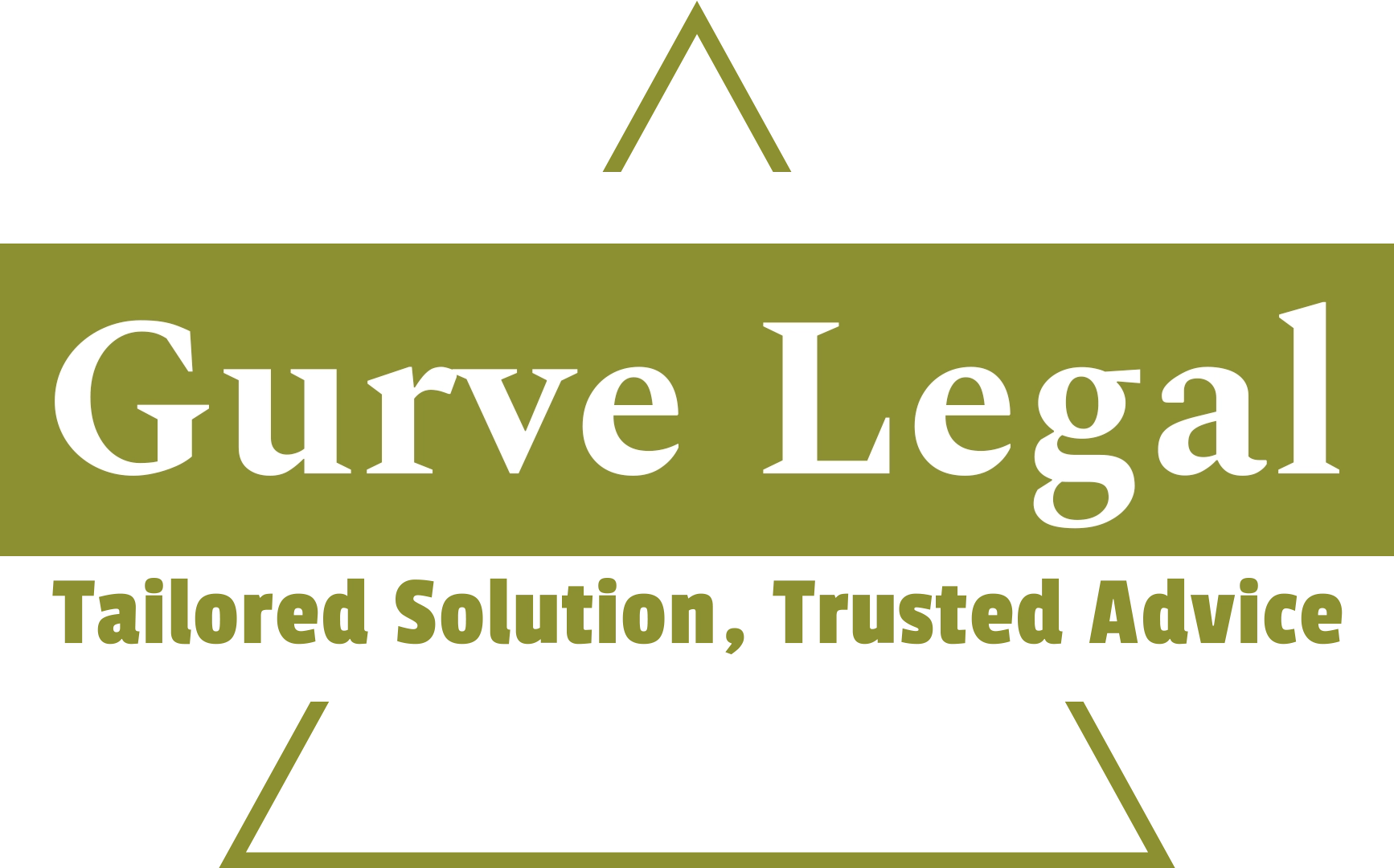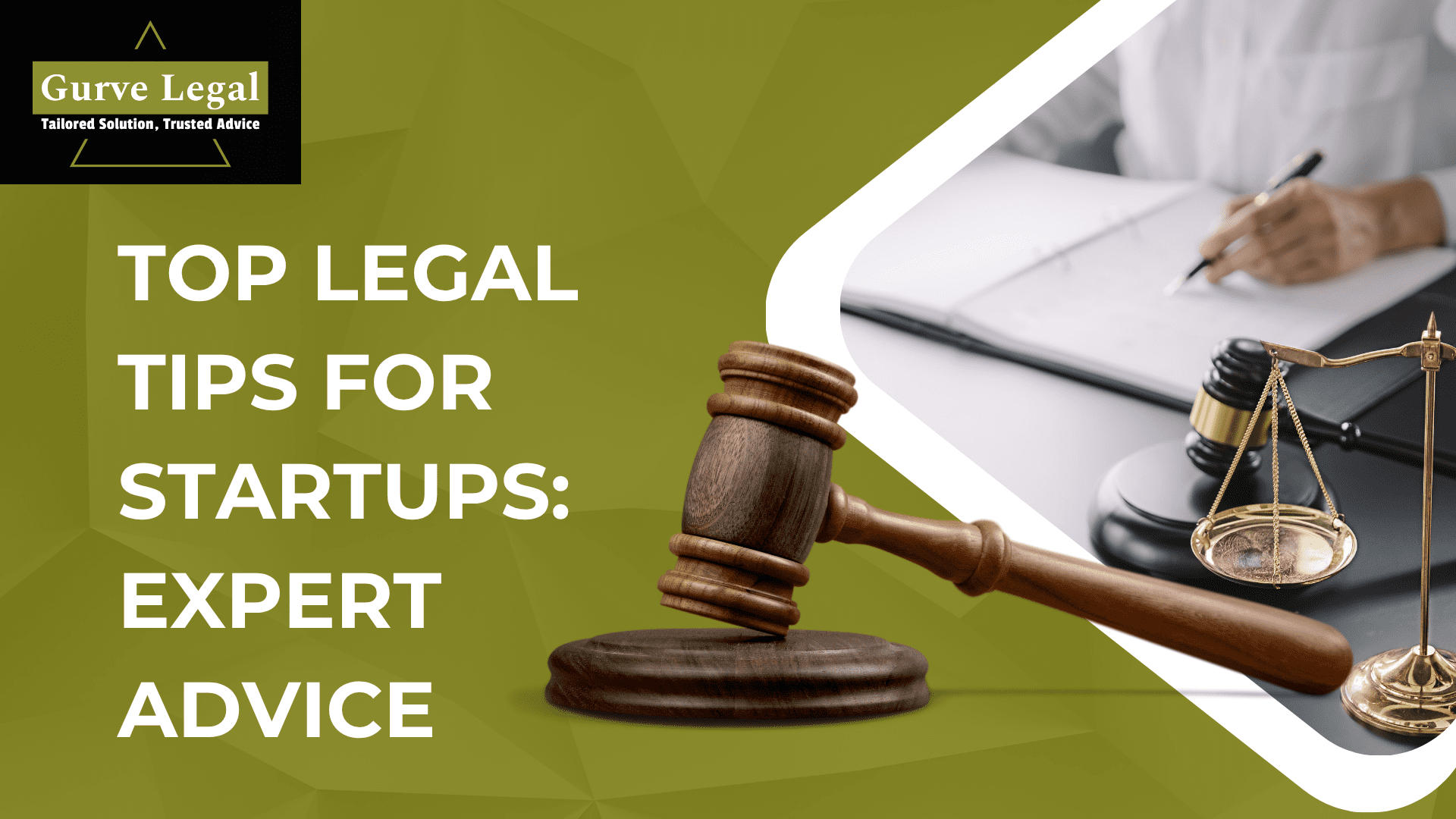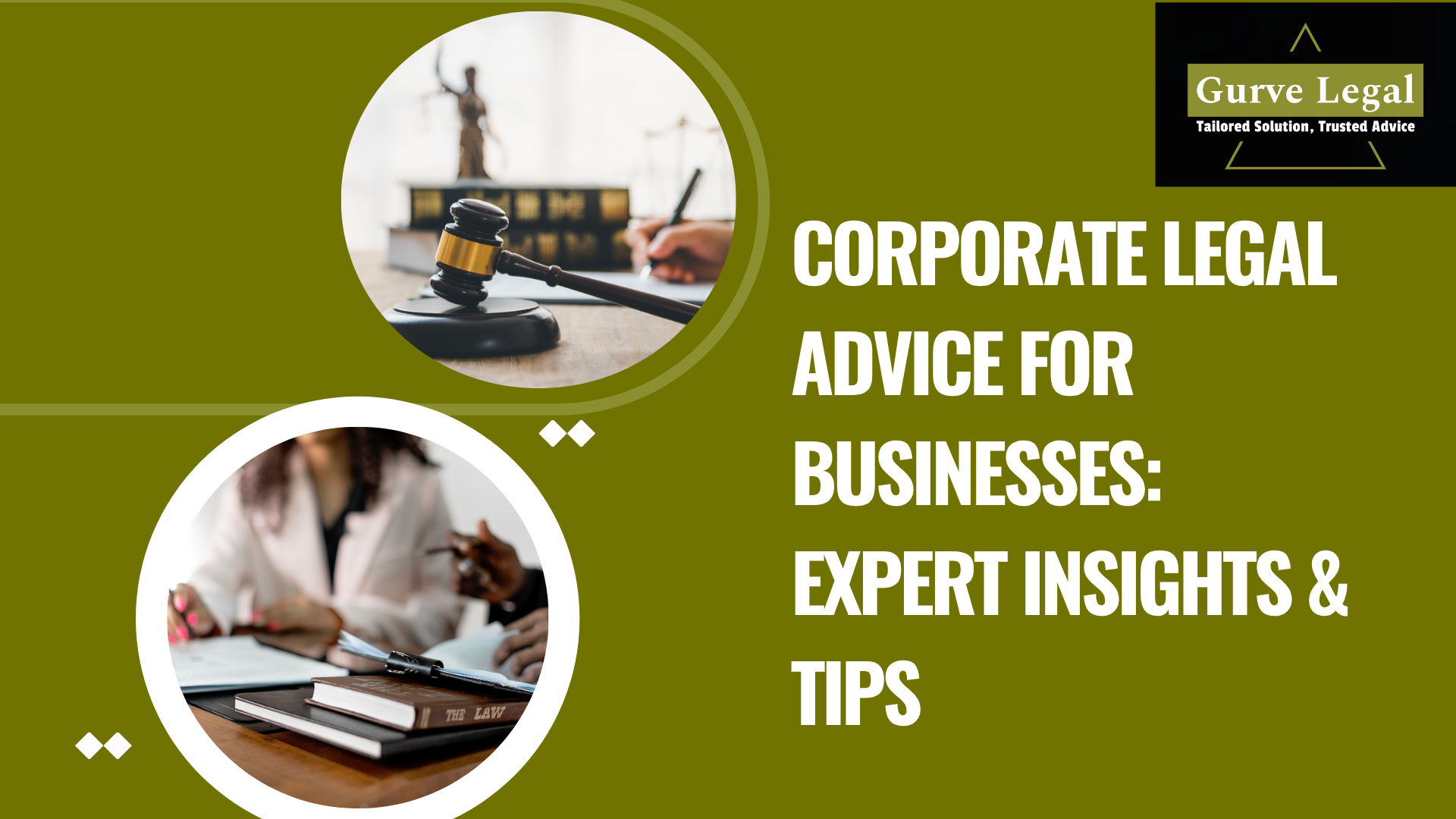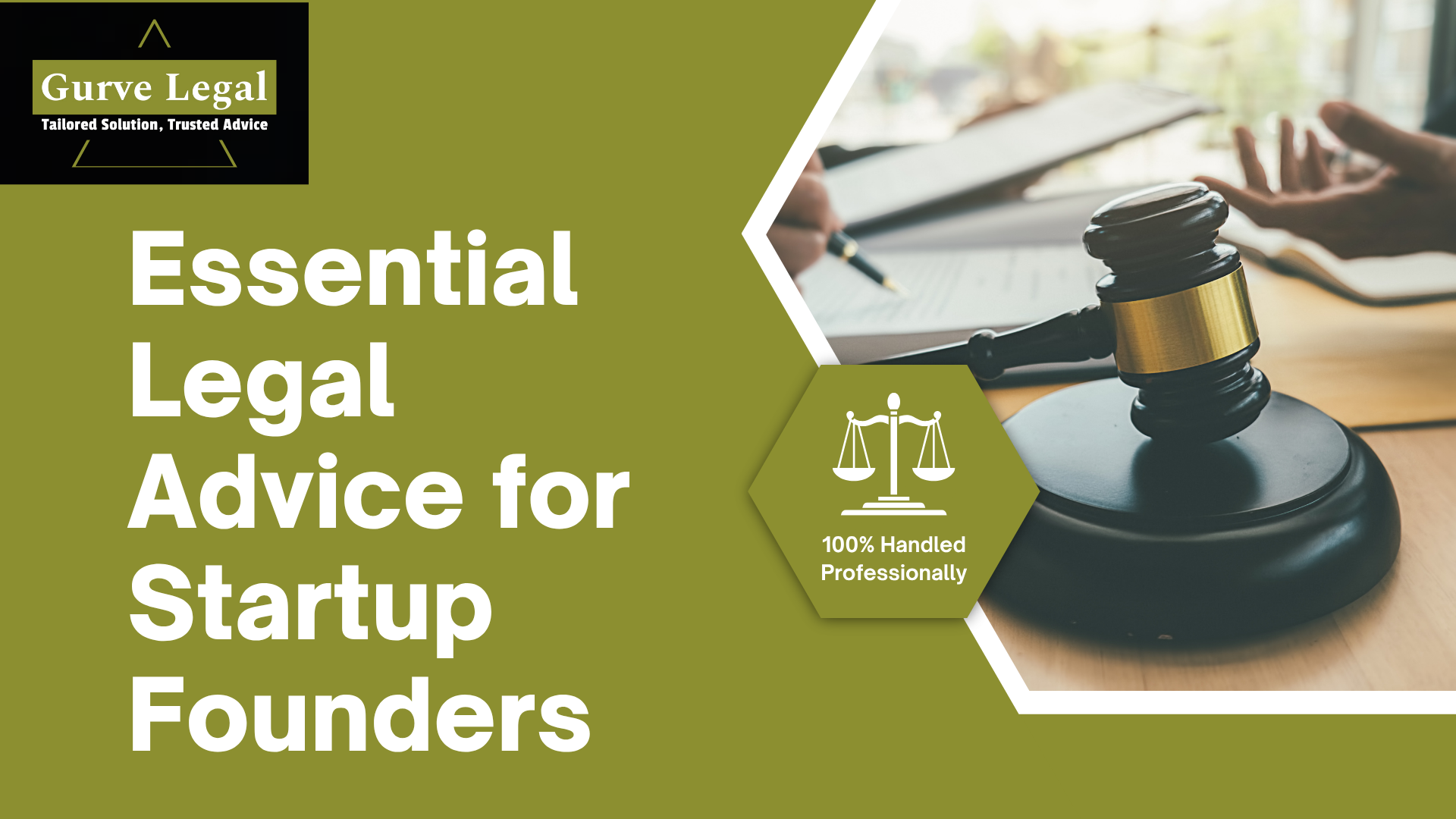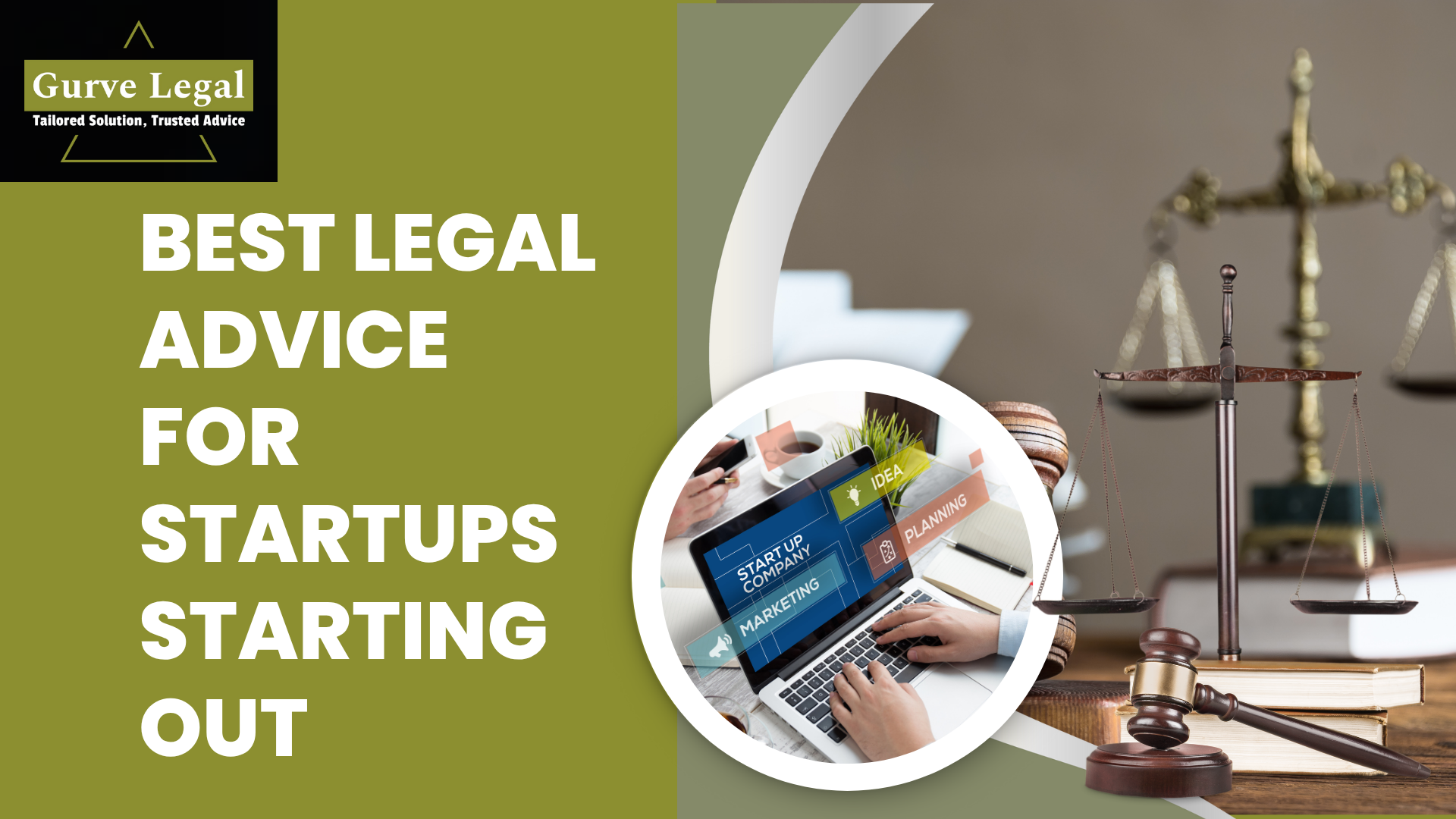Top Legal Tips for Startups: Expert Advice
Starting a business is a bold and exciting move—but it also comes with legal responsibilities that can significantly impact your future success. From choosing the right business structure to protecting intellectual property, understanding your legal obligations can make or break your startup. In this blog, we’ll explore legal tips for startups that every entrepreneur should know, helping you avoid common legal pitfalls and create a solid foundation for growth. Whether you’re launching a tech company or a local service business, having a legal strategy is as important as your business plan. And if you’re looking for professional guidance, Gurve Legal offers expert legal services tailored to the unique needs of startups in the UK. 1. Choose the Right Business Structure One of the first and most crucial legal decisions you’ll make as a founder is selecting your business structure. The structure determines your liability, tax obligations, and the way you raise funds. Common options in the UK include: Sole Trader – Simplest form, but you are personally liable for business debts. Partnership – Shared responsibility and liability between partners. Limited Company – Separate legal identity, limited liability, and better for raising capital. A limited company is often the most suitable structure for startups looking to scale and attract investors. However, it comes with increased regulatory requirements, so getting legal advice early is key. 2. Protect Your Intellectual Property (IP) Startups often overlook the importance of protecting their intellectual property, only to face costly legal disputes later. Whether it’s your brand name, logo, software code, or product design, securing IP rights ensures competitors can’t steal your innovations. Types of IP protection: Trademarks – Protect your brand name, logo, and slogans. Copyrights – Safeguard original content like website copy and software. Patents – Protect inventions and technical solutions. Design Rights – Secure the visual design of your products. Gurve Legal offers strategic IP protection services, helping you register and enforce your rights to keep your competitive edge. 3. Draft Clear Founders’ Agreements If you’re starting a business with co-founders, don’t rely on handshakes and verbal promises. A founders’ agreement is essential for clarifying each person’s role, equity share, decision-making power, and what happens if someone leaves the company. A well-drafted agreement reduces the risk of disputes and ensures everyone is aligned from the beginning. It can cover: Equity distribution Responsibilities and time commitments Vesting schedules Exit strategies Legal experts like Gurve Legal can help you draft these agreements to protect your interests and keep your startup running smoothly. 4. Comply with Employment and Contractor Laws Hiring your first employee or contractor is a big step—and one that comes with legal responsibilities. From employment contracts to tax reporting, you must comply with UK employment law. Failure to do so can result in penalties or even lawsuits. Key considerations include: Drafting legally compliant employment or contractor agreements Ensuring fair wages and working conditions Understanding the difference between employees and self-employed workers Following health and safety requirements Setting up payroll and National Insurance contributions Gurve Legal can assist with drafting contracts, workplace policies, and other HR legal documents tailored for startups. 5. Create Solid Contracts and Terms Contracts form the backbone of any business. Whether you’re signing up clients, bringing in vendors, or onboarding users to your app, clear and legally binding agreements prevent misunderstandings and reduce risk. Some key contracts your startup might need: Client and Service Agreements Supplier Contracts Shareholder Agreements Website Terms & Conditions and Privacy Policies Even if you use online templates to start, having a lawyer review your documents ensures you’re legally protected. With Gurve Legal, you can get customised contract services designed specifically for startup operations. 6. Stay Compliant with Data Protection Laws If your startup collects or stores personal data (like names, emails, or payment info), you must comply with data protection laws like the UK GDPR. This includes: Getting consent to collect data Safeguarding data securely Providing privacy notices Responding to data access requests Non-compliance can lead to fines or legal action. Gurve Legal offers data protection audits and guidance to help startups meet their legal obligations. 7. Understand Your Tax Obligations Taxes can be a legal minefield for startups. From corporation tax and VAT to payroll taxes and R&D credits, it’s crucial to understand what you owe and when. Important tax considerations: Registering for VAT (if applicable) Corporation tax deadlines Keeping accurate records and receipts Filing with HMRC on time Claiming startup tax reliefs While an accountant can help with financial matters, a corporate lawyer like those at Gurve Legal can ensure your tax structure is legally sound and efficient. 8. Plan for Investment Legally If you plan to raise capital through angel investors, venture capital, or crowdfunding, legal documentation is non-negotiable. You’ll need to prepare: Shareholder agreements Investment term sheets Equity allocation plans Compliance with the Financial Conduct Authority (FCA) if raising funds publicly Working with a corporate law firm such as Gurve Legal can help ensure your investment process is smooth, transparent, and legally compliant. 9. Monitor Regulatory Compliance Startups operating in regulated sectors (like fintech, healthcare, or food services) must meet specific legal standards to operate legally in the UK. This may include licensing, reporting, or operational compliance. Regular legal checkups can help you stay ahead of changing regulations. 10. Get a Startup-Friendly Legal Partner As a founder, your time is best spent building your product and growing your company—not navigating legal red tape. That’s why having a trusted legal partner is invaluable. Gurve Legal is a UK-based law firm with a focus on helping startups and small businesses succeed. From incorporation and contracts to compliance and investment, their team offers cost-effective, clear, and strategic legal advice tailored to the startup journey. Final Thoughts Legal issues are not just red tape—they’re opportunities to protect your business, impress investors, and grow with confidence. By following these legal tips for startups, you can avoid costly mistakes and set a strong foundation for your company’s future. Start smart. Protect your vision. And when in doubt,

